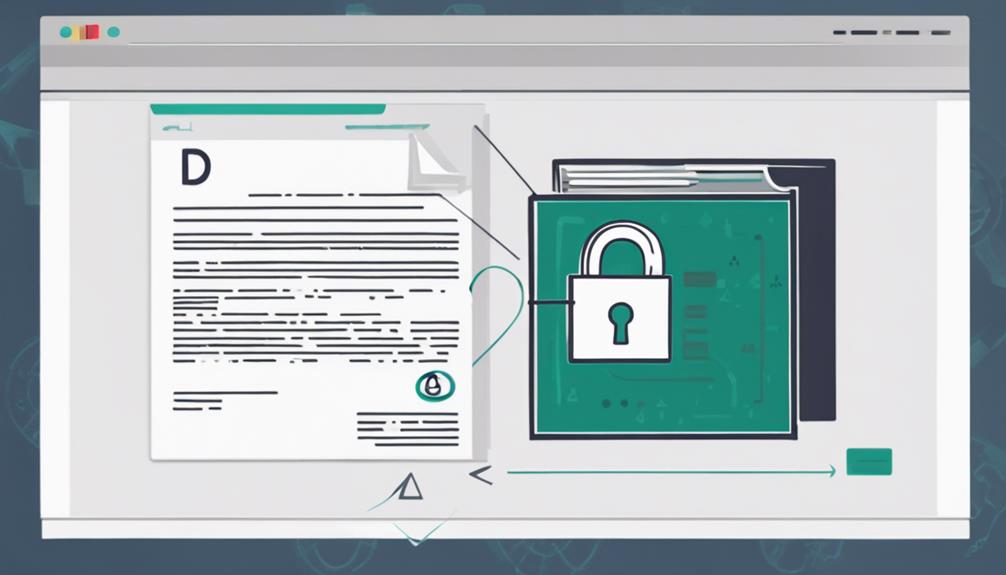When it comes to PDF conversion services, speed can vary significantly. You might wonder how fast are PDF conversion services – the answer lies in a complex interplay of factors. From file sizes to internet speeds, numerous elements influence the pace at which these services operate. Understanding these variables can help you make informed choices and optimize your experience with PDF conversions.
Instant Conversion
Looking to convert your documents to PDF format instantly? Our PDF conversion services provide a quick and efficient way to convert your files without any delay. Whether you have Word documents, Excel spreadsheets, PowerPoint presentations, or images, our service supports a wide range of file types for seamless conversion.
When it comes to conversion accuracy, our system ensures that your original document’s formatting, layout, and content are preserved accurately in the PDF output. You can trust that the resulting PDF will mirror the original file with high precision, making it suitable for professional use, sharing, or printing purposes.
With our instant conversion feature, you can quickly transform your files into PDF format with just a few clicks. Say goodbye to lengthy conversion processes and enjoy the convenience of getting your documents converted promptly. Try out our PDF conversion services today for a fast and reliable way to convert your files to PDF format.
Queue System
Let’s talk about the efficient queue management and streamlined processing workflow in PDF conversion services. A well-organized queue system ensures that tasks are handled in a systematic order, optimizing efficiency. By managing the queue effectively, you can streamline the entire conversion process and improve overall service speed.
Efficient Queue Management
Efficient queue management is essential for maximizing productivity and minimizing wait times in any service-oriented setting. Priority scheduling ensures that urgent tasks are handled promptly, reducing delays and improving overall efficiency. By assigning priorities to different tasks based on their importance or deadlines, the queue system can ensure that critical jobs are completed first. Load balancing is another crucial aspect of efficient queue management. It involves distributing tasks evenly across available resources to prevent bottlenecks and optimize performance. This helps in maintaining a smooth workflow and prevents overloading specific servers or workers. Implementing a combination of priority scheduling and load balancing techniques can result in a well-organized queue system that enhances productivity and customer satisfaction. By managing queues effectively, service providers can streamline operations, reduce waiting times, and deliver faster results to their clients.
Streamlined Processing Workflow
To optimize the processing workflow within a queue system, ensuring seamless task completion and resource allocation is paramount. Implementing a streamlined processing workflow enhances conversion accuracy and improves the overall user experience. Here’s how you can achieve this:
- Automated Task Assignment: Assign incoming conversion tasks automatically based on factors like file size, type, and complexity. This ensures that each task is directed to the most suitable resource, expediting the conversion process and maintaining high accuracy levels.
- Real-time Progress Tracking: Provide users with real-time updates on the status of their conversion tasks within the queue system. This transparency enhances the user experience by keeping them informed and reducing uncertainty about task completion times.
- Resource Optimization: Utilize intelligent algorithms to allocate resources efficiently, balancing workload distribution and minimizing processing time. By optimizing resource allocation, you can enhance conversion accuracy and streamline the overall user experience.
Server Capacity
With regards to the efficiency of PDF Conversion Services, one crucial aspect to consider is the server capacity. The server reliability and processing speed are pivotal in determining how quickly and seamlessly PDFs can be converted. Having a robust server infrastructure ensures that the conversion process is smooth and efficient, without any downtime or delays. Scalability options are also essential as they allow the service to adapt to varying workloads, ensuring consistent performance even during peak times.
An uptime guarantee is another critical factor to look for in PDF Conversion Services. This guarantee assures users that the service will be available and operational for the majority of the time, minimizing any disruptions in converting PDFs. By investing in a service with sufficient server capacity, scalability options, and an uptime guarantee, you can ensure that your PDF conversion needs are met promptly and reliably. It is imperative to choose a service provider that prioritizes server capacity to deliver fast and efficient PDF conversions.
Software Performance
A key element that significantly impacts the overall efficiency of PDF Conversion Services is the performance of the software utilized. To ensure optimal software performance, consider the following:
- Performance Optimization: Efficient software coding and regular updates are essential for enhancing the speed and effectiveness of the PDF conversion process. By continuously optimizing the software for better performance, you can significantly reduce conversion times.
- Resource Allocation: Proper allocation of resources such as CPU, memory, and disk space plays a crucial role in software performance. Ensuring that the software has access to adequate resources can prevent bottlenecks and slowdowns during the conversion process.
- Load Balancing: Implementing effective load balancing techniques can distribute the workload evenly across servers, maximizing resource utilization and speeding up the conversion process. By strategically allocating tasks, you can optimize software performance and enhance overall efficiency.
Internet Speed Dependency
The efficiency of PDF Conversion Services can be significantly influenced by the dependency on internet speed. When it comes to converting files online, a stable and fast internet connection is crucial for a seamless experience. Slow internet speeds can lead to delays in uploading and downloading files, ultimately affecting the overall speed and performance of the conversion process.
Internet speed dependency not only impacts the speed of the conversion but also plays a role in ensuring data security. A strong internet connection is essential for maintaining the security and integrity of your files during the conversion process. Slow speeds can increase the vulnerability of your data to potential breaches or unauthorized access.
Moreover, internet speed directly correlates with user experience. Faster internet speeds translate to quicker conversions, resulting in a more efficient and satisfactory user experience. Users are more likely to be satisfied with the service if they can swiftly convert their files without experiencing delays or interruptions due to slow internet connections.
File Size Impact
File size plays a crucial role in determining the efficiency and speed of PDF conversion services. When dealing with large files, conversion processes can slow down significantly, impacting overall performance. To optimize file size for faster conversions, consider the following:
- Compression techniques: Utilizing compression algorithms can help reduce the file size before conversion. This not only speeds up the conversion process but also saves storage space.
- Image optimization: Images often contribute to large file sizes. By optimizing images through resizing, adjusting resolution, or converting to more efficient formats, you can significantly decrease the file size and improve conversion speed.
- Text optimization: Efficiently structuring and organizing text within the document can also impact file size. Removing unnecessary formatting, reducing font sizes, and eliminating redundant text can help streamline the conversion process.
Format Impact
Considering the impact of different file formats on PDF conversion services is paramount to ensuring efficient and speedy processes. When selecting a file format for conversion, keep in mind that certain formats may require more complex processing, leading to longer conversion times. For instance, converting a Word document to PDF is generally quicker and more straightforward compared to converting a high-resolution image file.
Quality assurance is crucial when dealing with various file formats during conversion. Some formats may result in formatting errors or loss of data if not handled properly. It is essential to use PDF conversion services that offer quality assurance checks to ensure the converted file maintains its integrity.
Customization options can also be affected by the input file format. Certain formats may limit the customization features available during the conversion process. Make sure to choose a service that provides a wide range of customization options to tailor the PDF output to your specific needs. By considering the format impact on PDF conversion services, you can streamline the process and achieve the desired results efficiently.
Frequently Asked Questions
Can PDF Conversion Services Handle Encrypted Files?
Yes, PDF conversion services can handle encrypted files. They ensure encryption compatibility for secure conversions. When comparing speed, encrypted files may take slightly longer due to decryption processes, but the service efficiently handles them.
Do Conversion Services Support Batch Processing?
Yes, conversion services support batch processing, making it efficient for you to convert multiple files at once. However, be mindful of file size limitations to ensure smooth operation and maintain high conversion accuracy.
Are There Any Limitations on the Types of Fonts Supported?
When converting PDFs, remember font compatibility impacts text extraction. Ensure the service supports a wide range of fonts for accurate results. Don’t overlook this detail; it can significantly affect the quality of your converted documents.
Can Converted Files Retain Interactive Elements?
Yes, converted files can retain interactive elements like hyperlinks, forms, and multimedia. Ensure data security by using reputable services. Confirm compatibility with specific interactive features. Prioritize functionality and security when choosing a PDF conversion service.
Is There an Option for Customizing Output Settings?
For custom layout, PDF conversion services often offer options to tweak output settings. Ensure file compatibility by selecting the right settings. Customize your output to suit your needs, maintaining interactive elements as needed.



